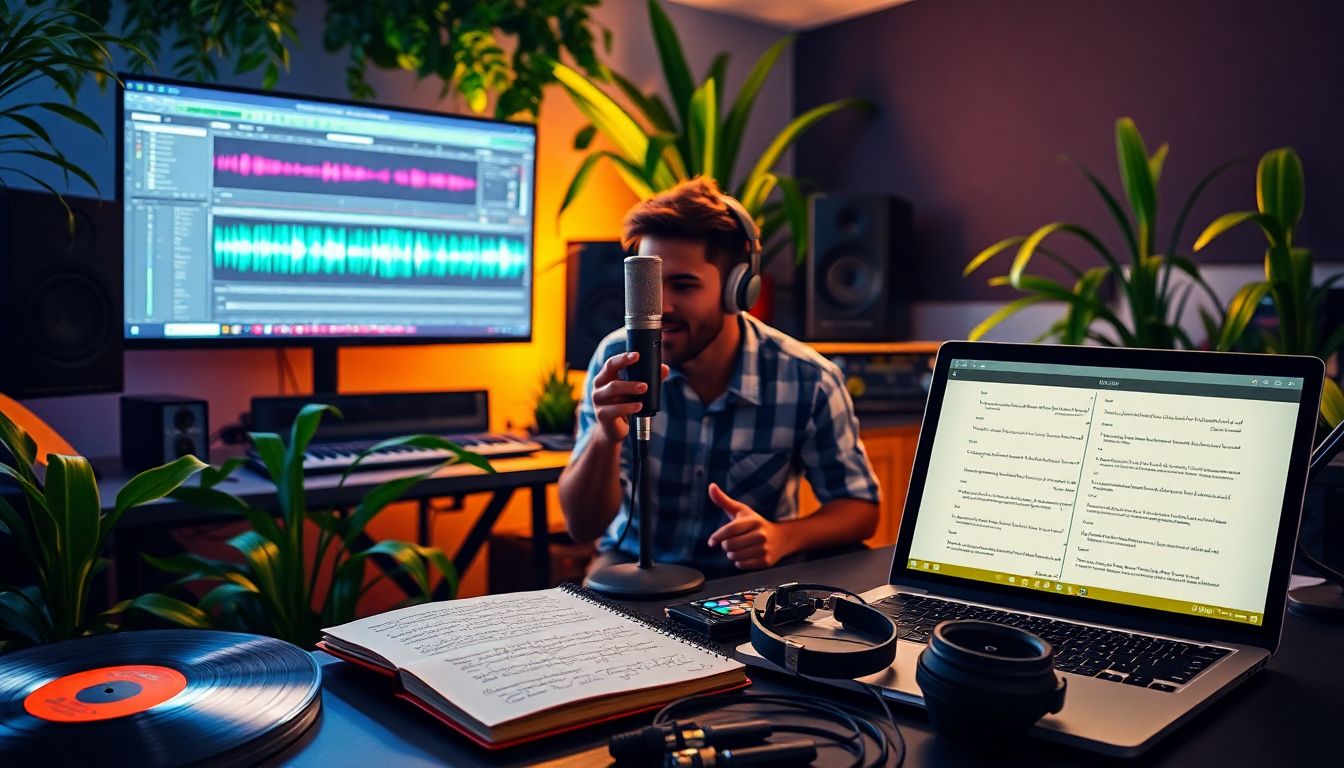music publishing for independent artists

Introduction
The way artists make money from music is changing fast. Today, independent musicians have more chances than ever to earn from their songs through music publishing. But, understanding how publishing works is key. It helps you get paid fully, protect your rights, and control your catalog. This guide is packed with clear steps to help you navigate music publishing. Whether you’re just starting out or ready to grow your business, these tips will set you on the right path.
Understanding Music Publishing: What Every Independent Artist Needs to Know
Definition and Overview of Music Publishing
Music publishing is all about managing the rights to the songs you write. When you write a song, you own the musical composition, which includes the melody and lyrics. Publishing involves licensing these rights and collecting royalties. It’s different from owning the recordings, which are the actual sound files. Think of it like owning the rights to a book, while the recording is the printed copy. Understanding this difference is crucial for earning money from your music.
The Role of Music Publishing in Revenue Generation
Publishing is a major income source for artists. It includes multiple ways to make money, such as:
- Mechanical royalties: earned from reproducing your music (like on CDs or streaming)
- Performance royalties: collected when your music is played live or on radio
- Sync licensing: money made when your songs appear in TV shows, movies, or commercials
Industry stats show that publishing can make up over 50% of an artist’s earnings. This means actively managing your rights can boost your income significantly.
Benefits of Managing Publishing Independently
Managing your publishing rights gives you more control over your money. You can decide how your songs are used and get a bigger share of the royalties. It also broadens your creative freedom because you can license your music to different outlets easily. Plus, you’ll have more bargaining power when negotiating licensing deals or sync placements with TV and film producers.
Registering Your Music: Step-by-Step Guide for Independent Artists
Choosing the Right Music Publishing Structure
First, decide whether you want to register as an solo publisher or join a collective society. Registering as an individual offers full control and a bigger slice of earnings but requires more work. Joining a society like ASCAP or BMI handles collection for you but takes a fee. Think about your needs and resources before choosing.
Registering with Performing Rights Organizations (PROs)
Major PROs such as ASCAP, BMI, and SOCAN help collect performance royalties. To register, submit your songs with detailed info like song title, writers, and publishers. Make sure your registration matches your song data to avoid missed payments. Register as soon as you finish a song to ensure you start collecting royalties right away.
Registering Mechanical Rights and Synchronization Licenses
Mechanical royalties are for reproductions of your music, like streaming or album releases. Agencies like Harry Fox Agency or Songfile handle these licenses. Getting a mechanical license is simple but essential to earn from your song copies. For sync licenses in TV, movies, or ads, directly contact music supervisors or use licensing platforms. Always have your catalog organized for quick licensing responses.
Maintaining Accurate Catalog Records
Keep detailed records of all your songs — including dates, co-writers, and licensing info. Use tools like spreadsheets or music rights management software. Regularly check your data and update whenever changes happen. Good records prevent lost royalties and legal issues down the road.
Maximizing Revenue and Protecting Your Music Rights
Registering Your Works Properly
Make sure each song is properly registered with the right info. Small mistakes can mean missing payments. Use accurate metadata like songwriter names, publisher info, and ISRC codes. Digital tools help reduce errors and ensure royalty payments go to you.
Licensing and Sync Opportunities
Pitch your songs for film, TV, or commercials. Build relationships with music supervisors who select music for their projects. Send quality demos and create a professional portfolio. When negotiating licensing deals, aim for terms that give you fair pay without sacrificing your rights.
Protecting Your Work from Copyright Infringement
Regularly search online to find if anyone is using your music without permission. Use tools and services to monitor platforms. If you find infringement, send a takedown notice or consider legal options. Registering your works officially makes it easier to fight copyright theft.
Monetization Strategies for Independent Artists
Besides royalties, explore selling merchandise, offering licensing directly to brands, or creating exclusive content for fans. Collaborate with other artists to reach new audiences or license your songs for additional income. These moves diversify your revenue streams.
Leveraging Technology and Resources
Digital Tools for Music Publishing Management
Platforms like Songtrust and TuneCore simplify rights management. They handle registration, royalty collection, and reporting from many sources. Automating these processes saves time and ensures you get paid accurately. Use tracking tools to see where your music is played.
Educational Resources and Industry Networks
Join online courses or watch tutorials about music rights. Connect with other artists through industry groups or social media. Learning from experienced musicians can unlock new opportunities. Stay updated on legal changes that affect your rights and income.
Using Data and Analytics to Grow
Review your royalty statements carefully. Understand which songs earn the most and why. Use streaming data to choose future projects or promotional strategies. Real-life success stories of independent artists show that understanding your data can lead to bigger income and bigger rights.
Conclusion
Managing music publishing might seem complex, but it pays off. With proper registration, licensing, and rights protection, you can earn more from your music. Using technology and building connections makes this process easier and more effective. Taking control of your publishing rights helps you create sustainable music career growth. Start today — your songs deserve it, and your bank account will thank you.

